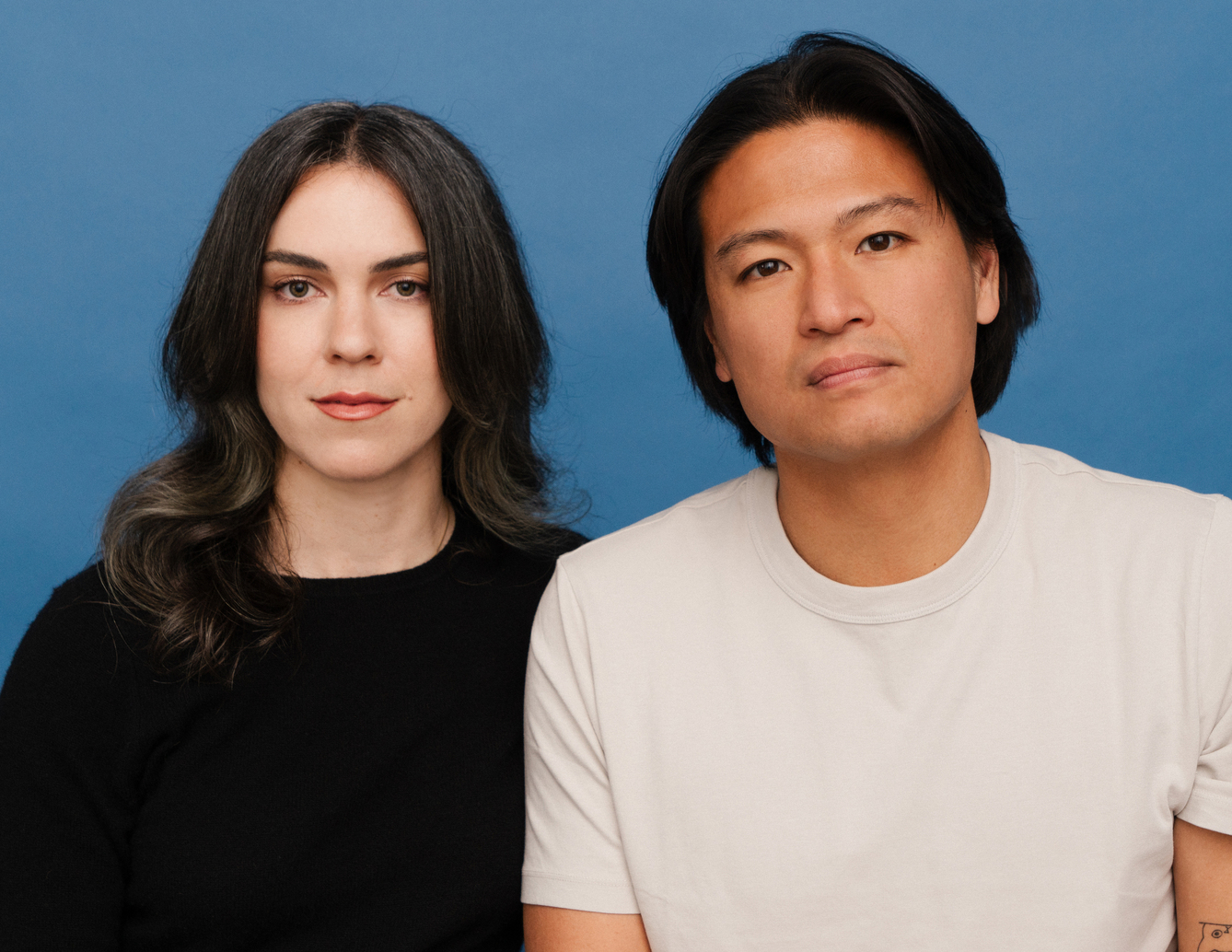These reporters wrote a book on Musk’s Twitter takeover. Here’s what they think is next for journalism and X

U.S. President-elect Donald Trump and Elon Musk watch the launch of the sixth test flight of the SpaceX Starship rocket in Brownsville, Texas, U.S., November 19, 2024. Brandon Bell/Pool via REUTERS
In a 1998 interview with CBS News, a 27-year-old tech entrepreneur named Elon Musk said he thought the Internet was the superset of all media. “It is the be-all and end-all of media,” he said. “One will see print, broadcast arguably, radio – essentially all media folded into the Internet.”
More than two decades later, Musk bought Twitter for $44 billion and celebrated the deal by posting a picture of himself carrying a sink. Right after the acquisition, Musk renamed Twitter as X, fired 80% of its workforce and shut down its trust and safety team.
Under Musk’s leadership, X has throttled traffic to links, brought back racist accounts, created incentives to share falsehoods and scared advertisers away. Musk has boosted his own account, shared falsehoods often, and discredited journalists by sharing dozens of posts against them every month. Here’s a small sample of some of his recent posts:
- “Legacy (formerly “mainstream”) media lies”
- “The legacy media propaganda machine that pushed hoaxes relentlessly through the Biden and Harris campaigns still exists and is still pushing propaganda”
- “The legacy media wants to destroy your right to freedom of speech.”
- “The reality of this election was plain to see on ?, while most legacy media lied relentlessly to the public. You are the media now.”
Musk openly campaigned for Donald Trump in the US presidential election and he’ll soon be joining his Administration as the head of a cost-cutting department abbreviated ‘DOGE’.
As he joins the MAGA establishment, many, including myself, have wondered whether X was still useful as a vehicle for journalism and whether it was time to leave. So I briefly travelled to London to speak with New York Times’ reporters Kate Conger and Ryan Mac, who have covered the platform for years and are the authors of the book Character Limit: How Elon Musk Destroyed Twitter, from which I took lots of details for this piece.
The article is structured around five key questions many journalists may be asking themselves. You go straight to each of those or read the whole thing below.
Jump to paragraphs on: Bluesky | Musk’s attitude towards journalism | Changes in content moderation | Musk’s election interference | Musk's attitude to strongmen | What’s next for Musk and X
1. Is X still relevant for journalism?
Let’s go back for a moment to the prediction of 27-year-old Musk. We could say he was right: according to our annual Digital News Report, most people get their news online and this is especially true about the platform he bought in October 2022. For more than a decade, Twitter was viewed as a place to get the latest news and commentary about current events.
Since Musk took over the platform, though, its use for news has stalled or declined in most countries. News outlets have noted a decline in referrals, as well as an increase in propaganda and disinformation.
“Despite some of the decay that’s happened on the platform, it’s still the primary hub for immediacy in news today,” Conger says. “You see this during major news events like the assassination attempt on Donald Trump. Other platforms are starting to take that market share, but today it still is the dominant hub for that kind of conversation.”
Both Conger and Mac have remained on the platform and haven’t followed the hundreds of journalists and news organisations who are deleting their accounts and flocking to X’s competitors. When the platform first started, Twitter became an inescapable tool for journalists: from being a place to share your reporting and engaging with audiences to finding sources and story ideas.
“Because we are technology journalists and because we specifically report on X, we have to be there,” says Mac, who underlined how he used the platform to generate stories and find sources. “These days, I found fewer people using it or at least migrating to other places like Threads and Bluesky, but I'm always there patrolling and watching the conversation.”
2. Is Bluesky the new Twitter?
Both Conger and Mac are part of the millions of users that have joined Bluesky, a micro-blogging social media site that emerged originally as a research initiative at Twitter. Its development was accelerated when it was announced that Musk was going to take over Twitter and it soon emerged as one of the platforms where users migrated to in opposition to Musk and his policies.
In the days following the US election, Bluesky began to soar above other alternatives such as Threads and Mastodon. Over 5.5 million users joined the platform after 5 November, putting its total user base at over 22 million at the time of this writing. With those numbers, is Bluesky poised to be a platform for those that long for what Twitter used to be?
Conger and Mac say that social media platforms come and go quite quickly, and take the example of Threads. The Meta-owned platform added 10 million users when Musk first took over Twitter, but it failed to overtake its main competitor as a cultural force. Consistency and utility will be the two traits that will decide Bluesky’s fate.
“The real test for Bluesky will happen now, when you start to see it becomes a mainstream platform and a place where my mom or dad might congregate. [Their future will depend on all the things] they have to do in terms of content moderation and just scaling to have that many users. They are adding a million people a day now. It is kind of a wait and see kind of moment for now,” says Mac.
While the authors stop short at predicting if Bluesky will stand the test of time and become mainstream, Conger says it has a promising advantage that makes it stand out from other competitors.
“What is promising about it is something that Twitter always very successfully stuck to, which is having a timeline that’s purely chronological and that is what I think is really essential for a platform that's focused on immediacy and breaking news,” she says. “You need to know what's happening now and so many other social platforms have strayed away from that to be algorithmically curated first and foremost.”

3. Does Musk’s attitude towards journalism matter?
Conger and Mac’s book details a number of instances that foreshadow Musk’s current public disdain for mainstream media. Even before he acquired Twitter, the authors describe Musk as someone who fundamentally distrust reporters and often tries to hinder their work.
Reporters critical of Musk and his companies were blacklisted and his public relations staff worked around the clock to correct anything he considered a negative news story. It was “Musk’s craving for narrative control” that led him to Twitter, the authors write.
“He’s always been antagonistic to the news media,” says Mac, who himself was temporarily banned on Twitter when reporting on Musk. “He’s removed checkmarks from journalists. Now he's de-emphasised news from legacy media on the platform and that has fundamentally changed how the platform operates. He and Linda [Yaccarino, the current CEO,] are saying ‘You are the media now.’ But what they mean is ‘You are the people that produce the news and you don’t have to rely on these legacy outlets.”
Musk has been very vocal about his contempt for journalists and has followed his words with important design changes. After Twitter’s acquisition, Musk implemented a number of changes that fundamentally impacted the position of journalism on the platform, including removing the verification badges for journalists and news organisations.
The book describes how chaffed Musk was about journalists being able to get verified just because of their profession. If a journalist or a news organisation wants to be verified on the platform right now, they have to pay for it.
Musk's lawsuits have a chilling effect on other potential critics, who may choose not to publicise their findings about hate speech on X when they know that this could result in them [being targeted] by the world's richest person

“As a journalist, you should always be sceptical of content that you're seeing online, and seek to verify it before amplifying it. The changes to verification add another step to that process: just because you're seeing some information on the platform coming from a verified account doesn't mean it's real,” Conger explains. “Often now it's a conspiracy theory, a hoax or some kind of material that you shouldn't rely on. So I think it's added another layer of scepticism to that reporting process.”
Musk has used litigation as a weapon against critics, particularly those who have accused X of allowing hate speech and misinformation on the platform. Last year, the platform sued Media Matters, the progressive media watchdog, and the Center for Countering Digital Hate and the Global Alliance for Responsible Media. Both groups had raised concerns about misinformation and hate speech on X which drove advertisers to pull from the platform.
“These kinds of lawsuits have a chilling effect on other potential critics, who may choose not to publicise their findings about hate speech on X when they know that doing so could result in them becoming targets of litigation by the world's richest person,” says Conger.
4. How has Musk changed content moderation?
Concerns about content moderation are a constant headache for platforms’ owners and have been even harder for a platform so focused on current events as Twitter.
Pre-Musk Twitter didn’t always curb instances of violent language and misinformation. But at least they drafted a series of guidelines they tried to adhere to and created a team in charge of enforcing them.
Before the takeover, for example, Twitter deleted a threatening post by Nigerian President Muhammadu Buhari citing a violation of its rules. Perhaps more famously, the platform suspended Trump’s account following the Capitol insurrection on 6 January 2021 “due to the risk of further incitement of violence".
Today those teams and systems are not in place and the platform is rampant with both hate speech and misinformation. Since Musk took over, he fired an indefinite number of employees who worked on content moderation and dismissed a global team working on curbing election disinformation right before 2024, a year in which 3.7 billion people voted around the world.
While the impact of these changes are still unclear, both nonprofits and public officials took notice of their footprint in the public sphere. A 2023 report by the Center for Countering Digital Hate detailed how X continued to host 86% of 300 posts reported for hate speech. A report by the European Commission identified X as being the platform found to be most used for disinformation campaigns.
Conger argues that the increase of hate speech can lead to real-world violence, and points to the insurrection in the US, the storming of the Brazilian Congress on January 8 2023, and the recent riots in the UK, where online speech and conspiracy theories caused a series of attacks against migrants and refugees.
“Those are circumstances where, in the past, Twitter would have tried to moderate some of those conversations and remove some of that incitement,” she says. “Now that's allowed to flourish and to get itself in front of a very large mainstream audience, and that’s really dangerous.”
5. Will Musk interfere in other elections?
Musk was one of the biggest victors of the US election. Throughout the campaign, he aligned itself with the Republican candidate by appearing in rallies and becoming one of Trump’s biggest financial backers. Some have even speculated that Musk tweaked the X algorithm so as to boost Republican and other right-wing accounts, while undermining Democrat and left-leaning accounts.
The latest evidence that X’s algorithm was manipulated comes from 2023 when the platform released the code that chooses which tweets show up on your timeline to GitHub. Interestingly, Musk's name had been coded into the recommendation algorithm, which specifically labelled whether a tweet was authored by Musk and upranked the ones who were.
In addition, the source code labelled tweets authored by a “Republican,” “a Democrat,” or “a power user.” Musk himself denied knowing why that was the case and made a plea for his engineers to change it. But two recent analyses by the Wall Street Journal and the Washington Post found that the platform appears to serve new users large amounts of right-leaning political content and that Republicans are now more likely to go viral on the platform.
While there is no clear evidence of Musk meddling with the algorithm to serve a political purpose, Conger points out that Musk is the most followed individual on the platform and that he doesn’t need to change the algorithm anymore for his posts to be boosted. His massive reach helped him amplify false claims about the US election and about other current events.
According to a report by the Center for Countering Digital Hate, Musk’s false or misleading posts about the US elections have been viewed nearly 1.2 billion times. These include claims that Democrats are importing illegal voters, AI-generated voice clips and images of Kamala Harris, and posts sowing doubts about the electoral process and alleging fraud from the Democrats.
Regardless of any algorithmic meddling, whatever Elon Musk posts will be amplified on the platform. So, with Musk having so many interests abroad, how concerned should we be about similar election interference outside the United States?
Musk has picked and chosen leaders around the world whom he’s been close with, or he’s made enemies with, and he could certainly become more vocal in global elections
This month alone, the tech billionaire has weighed on issues related to Italy, Argentina, Germany and the European Union.
He backed Italian prime minister Giorgia Meloni’s policy of detaining foreign migrants in Albania. Musk and Meloni have developed a close friendship since the latter was elected, with rumours of a romantic relationship which Musk has denied.
He also met with Argentinian president Javier Milei in Mar-a-Lago and pointed to his policies as an example for his own cost-cutting effort: in Argentina, Milei has halved the number of ministries, leaving only nine, and reduced state spending by an estimated 31%. The pair has met multiple times since Milei was elected, with both even visiting a Tesla factory in Texas together.
Mac reiterates that just by having the most followers on the platform and just by being vocal, he could easily amplify his political allies to millions of eyeballs. “We’ve seen it in Brazil, which didn’t have an election, but where he has fought against opponents of Jair Bolsonaro,” he says. “And he has picked and chosen leaders around the world whom he’s been close with, or he’s made enemies with, and he could certainly become more vocal in global elections.”
Will Musk’s brazen commentary on other countries’ affairs interfere with his many businesses abroad? Conger and Mac both pointed out that Musk has moved beyond the normal accountability mechanisms that might apply to other public figures on account of his wealth, power, and influence.
“For instance, we've seen him publicly post that he believes the US should end or reduce its aid to Ukraine, yet the country still relies on Musk's Starlink for battlefield communications,” says Conger. “Even if he says something online that Ukrainian leaders dislike, they don’t have much recourse.”
6. Will Musk help authoritarian leaders?
This year, Musk got involved in a months-long social media spat against Alexandre de Moraes, a Brazilian Supreme Court judge that is responsible for several investigations into former Brazilian president Jair Bolsonaro that could land him in jail. The platform was briefly blocked in Brazil by the Supreme Court when its owner refused to appoint a legal representative for the platform in the country and to comply with court orders to suspend certain accounts. A few weeks later, however, Musk ended up caving to the government’s request and paying a USD $5m fine.
A few days before this article was published, Musk branded the UK a ‘tyrannical police state’ and branded the newly approved European Commission as ‘undemocratic’.
While the old Twitter constantly grappled with questions surrounding content moderation and censorship, its leadership took a more passive stance when it came to enforcing bans and removing content. They did not want to be the arbiters of global speech but would remove content that was illegal in nature or banned accounts that harassed other users or incited violence. Musk’s X, however, has already made some arbitrations in global speech.
X has censored content in India that is critical of India’s prime minister Narendra Modi and his government including suspending accounts from journalists, politicians and activists. Similarly, the platform imposed restrictions on accounts critical of Turkish President Recep Tayyip Erdoğan on the eve of the 2023 Turkish General Election. In fact, a 2023 data analysis by Rest of World revealed that during Musk’s first six months running the company, Twitter complied with 83% government orders for censorship or surveillance.
“His political positions are ideologically inconsistent,” says Conger. “You see that in the way that content moderation decisions play out depending on which government around the world asks them to do something.”
“If it's one he agrees with like Turkey or India, for example, as he has good relationships with Erdogan and Modi, he’s going to comply with them wholeheartedly,” adds Mac. “But he’ll fight those decisions if they come from places where he doesn’t agree with the leadership or doesn’t have a political ally.”
7. What is next for Musk and X?
Musk will soon be adding the head of the Department of Government Efficiency to his growing list of leadership positions, which include CEO of SpaceX, CEO of Tesla Motors, and Chairman of X. It is still unclear how he will leverage his new position. But Mac stresses that it’s unprecedented to have such a powerful man at the highest levels of the federal government.
As for the social media platform formerly known as Twitter, Conger thinks that it has the potential to further become a mouthpiece for the MAGA-subset of the Republican Party. Currently, Trump is part-owner of the social media platform Truth Social, a Twitter clone he helped start after he was banned from the platform.
“Musk has obviously gone all in on [MAGA] and has amplified and promoted the voices of others who are part of that movement,” explains Conger. “He has a lot of interest in having those in power speak directly to X users. The engagement and the interest that flows from that is something that is quite appealing to him. So I think we may start to see Musk try to position X almost as the press secretary of the Trump presidency, as the place where you hear from the White House.”
Both Conger and Mac have taken a step back from the platform, not posting or engaging as much as they did in the past. Many users have gone one step further than them and have deactivated their X accounts. The day after the US election, X experienced its largest user exodus since Elon Musk bought the platform, with reportedly more than 115,000 users deleting their account on that day alone.
“The one thing that we know for certain is that there is no social media service that has lived a long and happy life,” says Conger. “Friendster is gone. MySpace is gone. Facebook is now sort of a ghost town.”
“We’ve been comparing [X] to Yahoo Mail, in the sense that some people still have accounts, and some people still use it, but it's not growing and it's not a place that attracts new users, but the people that are there like it there,” says Mac.
The trajectory of decay that X is following is not necessarily unique to X as platforms come and go. X growth in terms of news consumption has been stagnant for the last few years, according to our annual Digital News Report, while new platforms like Instagram and TikTok are growing in popularity.
“There's no obligation for [X] to exist in the world,” says Mac. “It provided utility for a certain amount of time. Tomorrow, something could usurp it."
In every email we send you'll find original reporting, evidence-based insights, online seminars and readings curated from 100s of sources - all in 5 minutes.
- Twice a week
- More than 20,000 people receive it
- Unsubscribe any time
signup block
In every email we send you'll find original reporting, evidence-based insights, online seminars and readings curated from 100s of sources - all in 5 minutes.
- Twice a week
- More than 20,000 people receive it
- Unsubscribe any time







